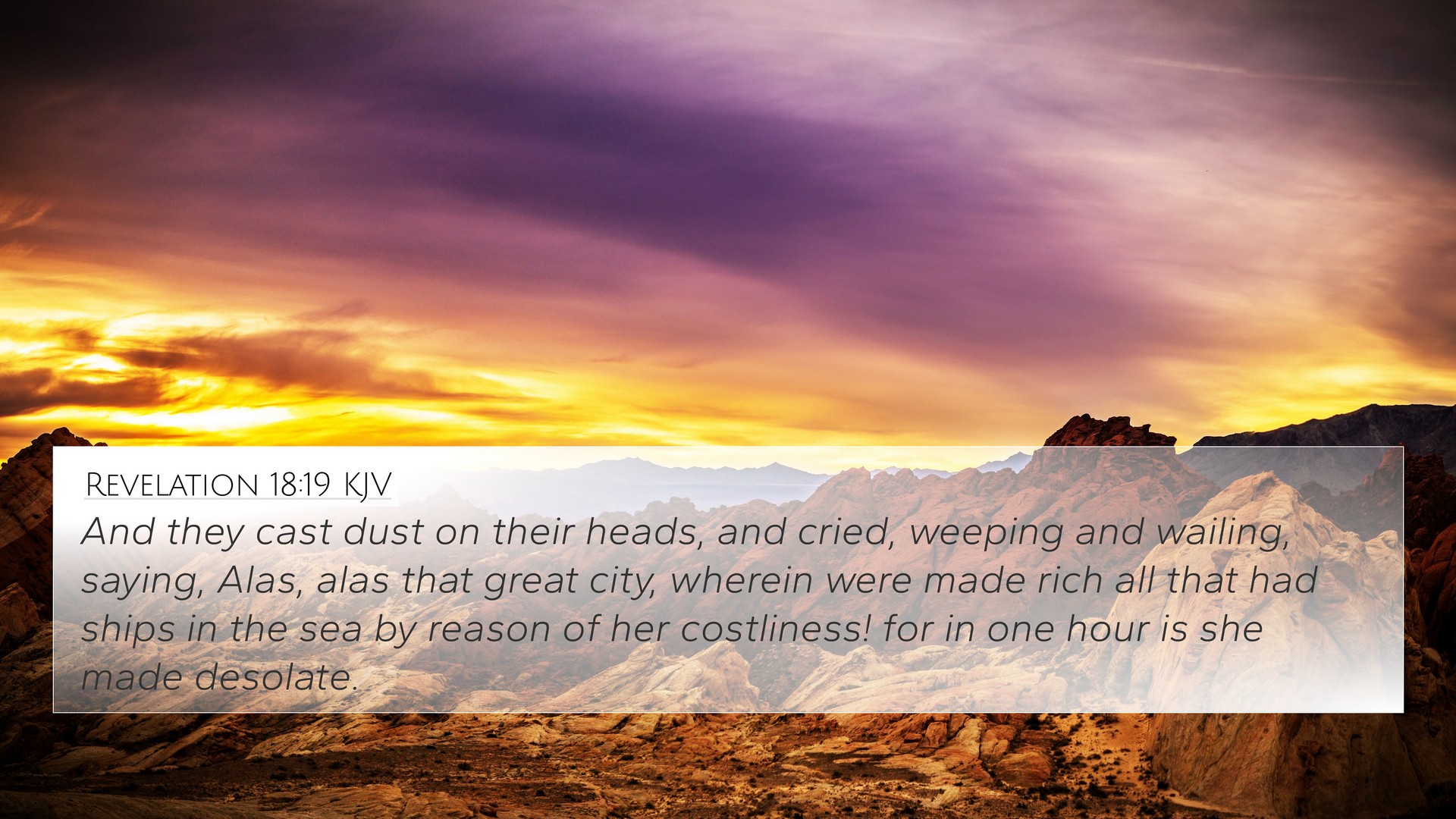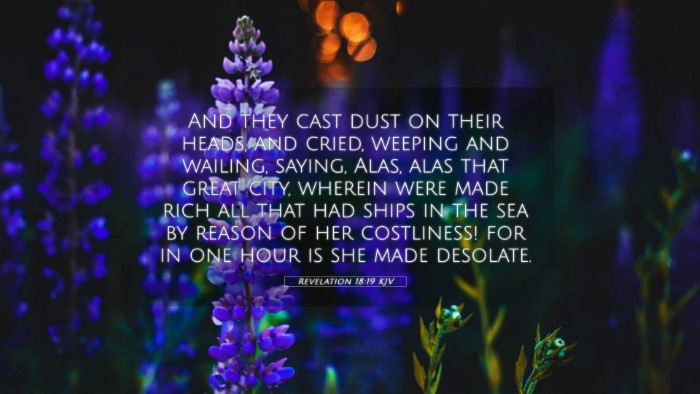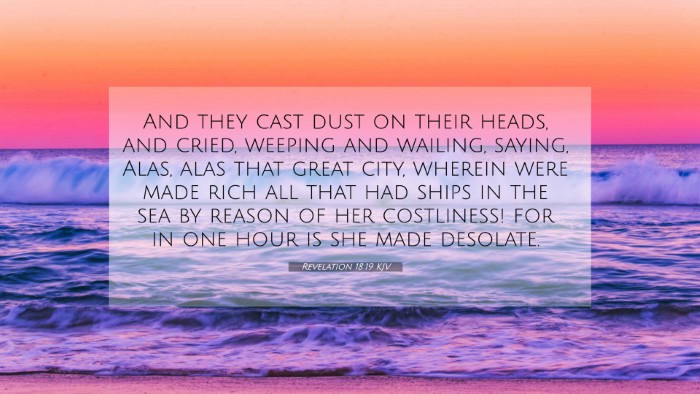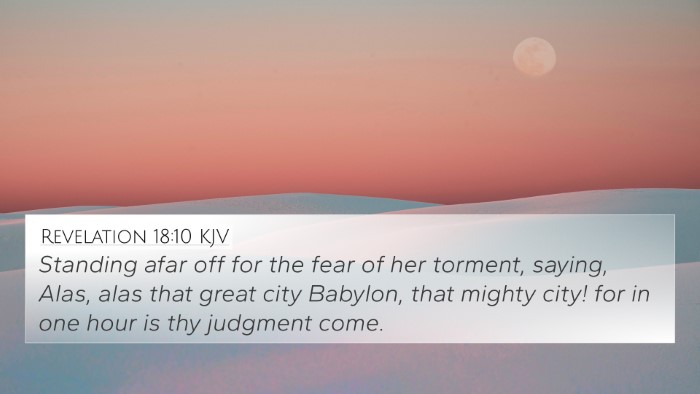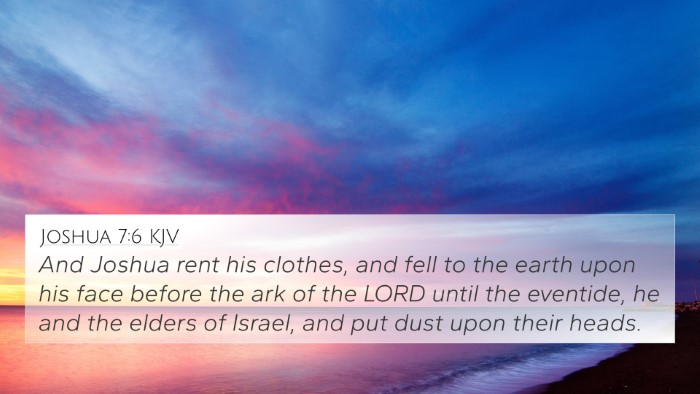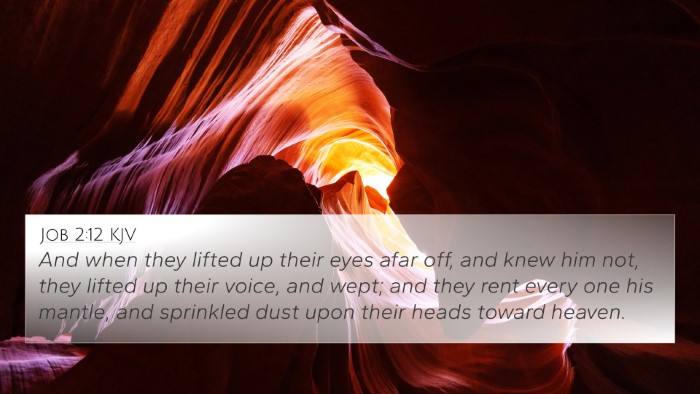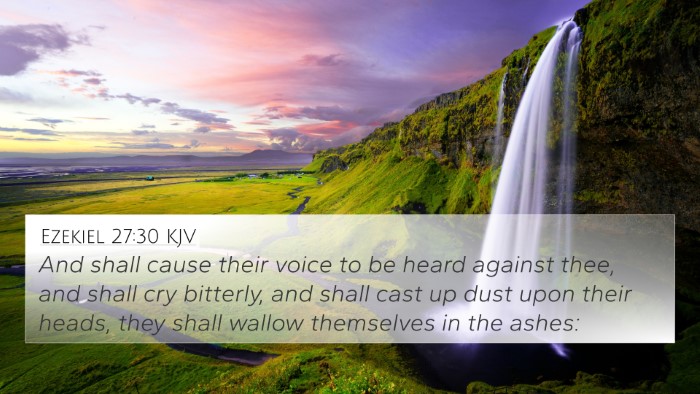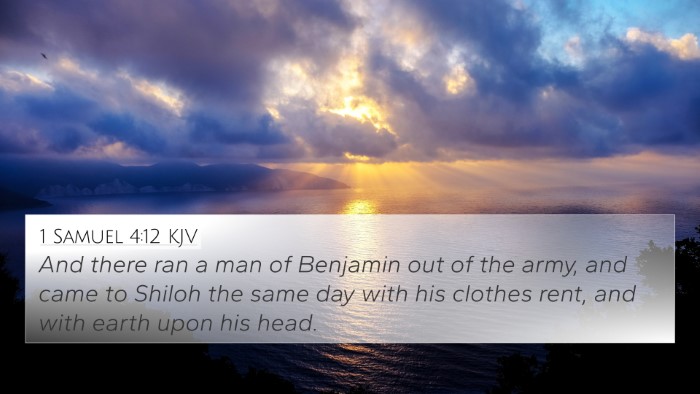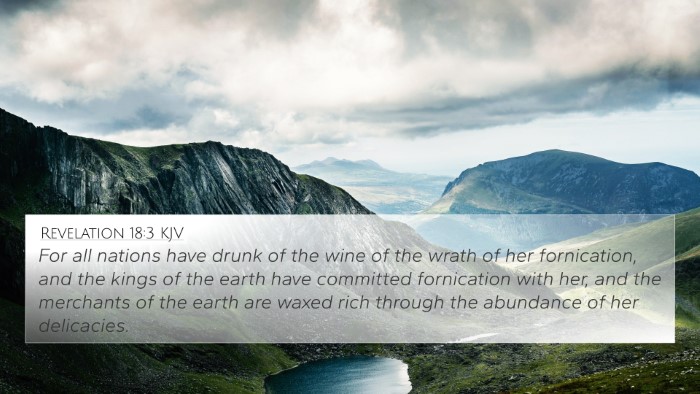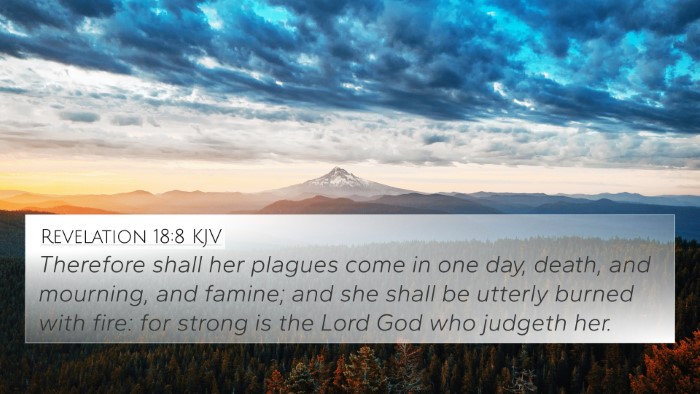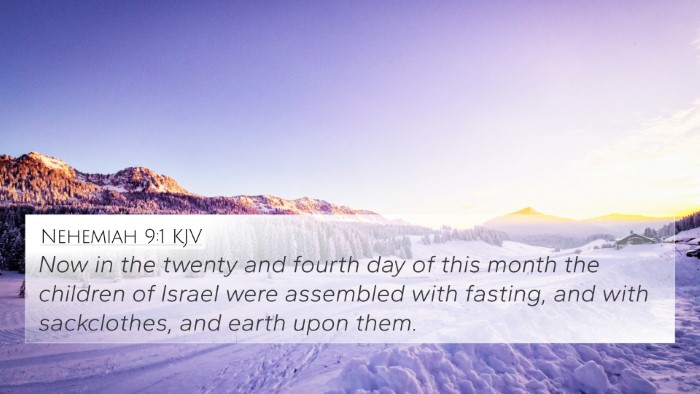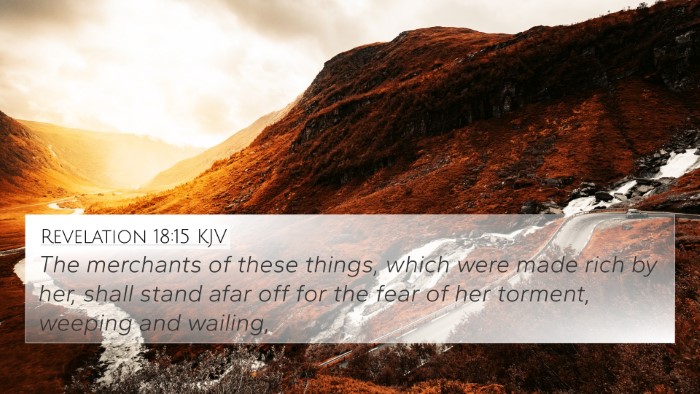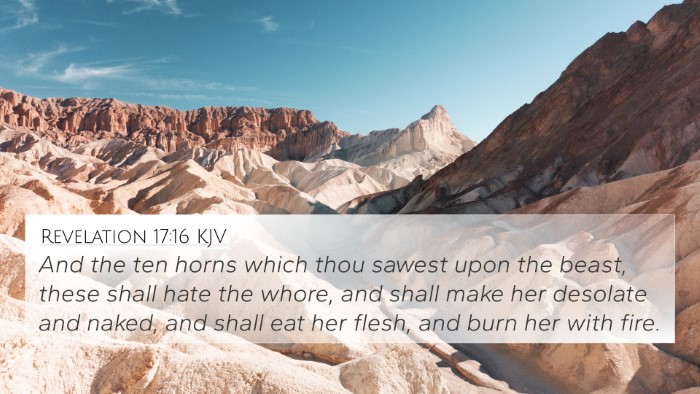Meaning and Interpretation of Revelation 18:19
Revelation 18:19 states: "And they cast dust on their heads, and cried, weeping and wailing, saying, Alas, alas, that great city, wherein were made rich all that had ships in the sea by reason of her costliness! For in one hour is she made desolate."
This verse serves as a poignant lament over the fall of Babylon, symbolizing a world system opposed to God. The imagery of casting dust on their heads is a biblical expression of grief and mourning, indicative of the sorrowful reaction of the merchants who once profited from the city's opulence.
In this context, Babylon represents the pinnacle of human wealth and pride that ultimately leads to destruction. Public domain commentaries provide rich insights into this profound imagery.
Commentary Insights
-
Matthew Henry:
Henry emphasizes the complete reversal of fortune described in this passage. The merchants who thrived in Babylon's prosperity are rendered helpless as the city falls. His commentary reflects on the temporary nature of wealth and the certainty of divine judgment that can raze empires in an instant.
-
Albert Barnes:
Barnes notes the reaction of the seafaring merchants, portraying their deep sense of loss for their investment and livelihoods. He highlights how the cries of "Alas" encapsulate the futility of placing hope in material riches, especially when contrasted with the eternal values of faith and righteousness.
-
Adam Clarke:
Clarke delves into the symbolism of the shipmasters lamenting for the destruction of Babylon, framing it as an illustration of the broader consequences of indulging in a corrupt system. He points out that the ultimate downfall of such a system serves as a warning to all who seek their security in worldly pursuits.
Cross-References and Thematic Connections
Revelation 18:19 can be cross-referenced with the following verses:
- Isaiah 47:9: A prophetic lamentation regarding the fall of Babylon, highlighting similarities in judgment themes.
- Jeremiah 51:8: Discusses the destruction of Babylon, confirming the certainty of divine retribution.
- Lamentations 1:1: Describes the desolation of a once-great city, echoing the mourning found in Revelation 18.
- Ezekiel 26:17-18: A prophecy against Tyre also reflects themes of commercial downfall and mourning.
- Luke 16:19-31: The parable of the rich man and Lazarus, illustrating the ultimate reality of wealth and eternal consequences.
- Matthew 6:19-21: Emphasizes the folly of storing treasures on earth as opposed to heaven, offering a foundational context for understanding the lament in Revelation 18.
- James 5:1-3: A warning to the rich, correlates with the fate of those who exploit wealth unjustly.
Thematic Overview
This passage and its associated commentaries emphasize several key themes:
- The impermanence of worldly wealth: The merchants’ sorrow signifies a lesson on the fleeting nature of riches.
- Divine justice: Illustrates that God’s judgment can come swiftly, dismantling human arrogance.
- Mourning and repentance: The act of casting dust symbolizes a call for repentance and an acknowledgment of sin.
- Symbol of Babylon: Represents broader societal elements that oppose God, serving as a warning to avoid similar pitfalls.
Tools for Bible Cross-Referencing
For those interested in exploring connections between Bible verses, the following resources are useful:
- Bible Concordance: A tool that helps locate specific words and their occurrences throughout the scripture.
- Bible Cross-Reference Guide: These guides provide parallels and references of scripture that can deepen understanding.
- Cross-Reference Bible Study: A method for studying interconnected verses to uncover deeper meanings.
- Comprehensive Bible Cross-Reference Materials: Offers extensive listings of links between Biblical texts.
Application to Study Methods
When approaching Biblical texts, consider employing the following methods for effective cross-referencing:
- Identifying Connections: Look for recurring themes or phrases that may illustrate a thematic link between verses.
- Comparative Analysis: Scrutinize how different books address similar subjects.
- Socratic Method: Ask probing questions about verses to unveil deeper meanings and connections.
Conclusion
Revelation 18:19 encapsulates profound messages about the transient nature of materialism and the assuredness of divine judgment. Understanding this verse through the lens of public domain commentaries and comprehensive cross-referencing lends itself to a richer appreciation of its meaning, reinforcing the interconnectedness of scripture.
